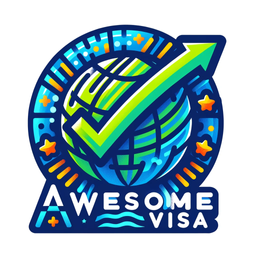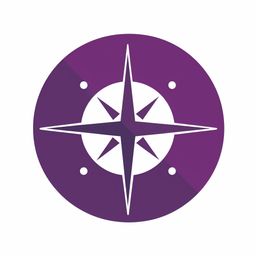DPS 周刊 128 - Why Not?

Mark Rober 是炙手可热的科普类 Youtuber,拥有近三千万关注。之前 NASA 和 Apple 的工作经历让他专注用各种 DIY 来解决实际问题,比如制作释放怪味的包裹来报复偷包裹的人,制作了世界上最小的 nerf gun,等等。也因为他出色的科普能力,MIT 请他今年在毕业典礼上致辞,他给出了很不一样的演讲。他讲了三点:
- 天真乐观 (embrace naive optimism)
- 定格失败 (frame your failures)
- 培养关系 (foster your relationships)
- 开开玩笑 (engage in occasional playful anarchy)
天真乐观 - 当我们没有什么经验或者包袱时,我们的乐观会有一点天真。而这种天真让我们无所顾虑,无所畏惧,直接开始尝试。也许我们会越到一些挫折,但不要紧,因为我们足够天真,依旧会前行。
定格失败 - 当我们遇见失败时,不要着眼于失败本身,而要问自己能从失败中学到什么,然后加以改进。就好像我们玩游戏时,哪怕我们失败了,我们并不感到沮丧,而是琢磨自己为什么失败了,然后爬起来改进,说不定就通关了。人生也是如此,我们不要对失败太沮丧,因为每一次失败都是一次绝佳的学习机会,当我们回头来看,这些失败都会成为我们成功路上的垫脚石。
培养关系 - 当我们培养关系时,不妨多想想那些优点,这样有助于强化我们的关系。反之亦然,当我们盯着那些缺点看,只会让我们的关系恶化。这就是确认偏差的威力 (confirmation bias)。
开开玩笑 - why not? 最后 Mark 直接用无人机把学士帽带起来飞走了。
演讲全文在文末,请慢慢享用。
我们已经开通了微信支付和支付宝支付,如果你想及时读到 DPS 的全文,不妨直接付费订阅:
关于支付的详情介绍,可以访问这一页面。
Recap
去法国读书为什么要先读语言?
去读语言为什么不要在巴黎读?
法国的任何工作都享有至少25天年假吗?
不拿永居就能直接拿法国护照吗?
入籍法国只要三年够了吗?
12月17日,我们邀请了曾经在法国学习工作生活的小菜分享了如何润向法国的经历。如果你没赶上这期讲座,那么千万别错过这份详尽的讲座笔记。

Evan Armstrong 读完描写乔布斯的 Make Something Wonderful,认真分析了乔布斯到底留了什么给我们:
- 世界不过是由一个草台班子组成的;
- 好的内容与好的技术结合起来,可能会有奇迹产生;
- 乔布斯看起来每一步都走错了,但其实每一步他都选择做自己喜欢的事;
- 很多人以为自己找到了铁饭碗,直到很多年之后才发现并不是;
- 解决你关心的问题是一种很好的生活方式;
- 简而言之,乔布斯的生活之道就是:爱你所爱的,看好自己,创造一些美好。

Ryan Holiday 在自己的办公室里放满了各种 Say No 的纪念品,时刻提醒自己说 No:
- 当你对一件事说 yes,以为着你对其他事说了 No;
- 当你决定对一件事说 No 的时候,请保持礼貌;
- 当你决定对一件事说 No 的时候,不要说可能,也不要给任何借口,就是一个干脆的 No;
- 人生就是各种取舍的组合,这是你的人生,所以说 No 是你的权利;
- 当你有选择时,你会感到自由,而说 No 就是这样一种选择。

Alan Chan 接受了 Ness Lab 的访谈,详细介绍了他们如何开发和使用 Heptabase:
- Heptabase 的灵感来源于 Douglas Engelbart 的 Open Hyperdocument System (OHS) 概念。Alan 反问自己,如果 Douglas Engelbart 有了现代的开发栈,会如何实现这一概念?
- 他希望产品能和用户一起成长,即产品会随着用户需求的变化而成长,而不是一成不变地要求用户来适应;
- Heptabase 基于两个思维模型:1. 知识循环,即知识的产生有五个环节 -- 探索,搜集,思考,创造和分享;2. 多层系统,即一个系统有多层,每一层负责一个任务。
- Heptabase 的白板设计基于两个理念:1. 当人们能看到时,他们的思考更好;2. 为了更深入地思考,人们需要将学到的概念颗粒化。
- 使用 Heptabase 的“啊哈”时刻在于,当你逐渐积累了很多卡片之后,你会发现思考变得越来越流畅。

Facundo Olano 认真梳理了软件开发和用户之间的关系:
- 任何软件都有一个目标,即解决用户的问题;
- 代码的易读性非常重要,因为写代码只需要一小部分精力,而维护代码需要更多的精力;
- 在软件开发的初期就应该让用户测试,这样才能明白他们的需求。

Jacob Kaplan-Moss 详细地介绍了如何在工作中建立信任:
- 把信任当作是管理工作的一部分;
- 信任是双向的,你要同事信任你,那首先要做到值得同事信任;
- 当你给予足够的信任给别人,别人也会更加信任你。

Mark Rober 在 MIT 的演讲全文
The first bit of advice is to moisturize when giving a commencement speech Is to embrace naive optimism.
Okay, what do I mean by naive optimism?
Naive optimism means it's easier to be optimistic about your future when you're sort of naive about what lies ahead.
When you don't know what you don't know.
As an example, think back on the first week at MIT: how naive you were about the number of all-nighters and cans of Red Bull that would be required to be sitting where you are right now.
In fact, you guys drink so much caffeine, I'm surprised you're even sitting at all.
If you truly understood what would be required that discouragement might've prevented you from even starting.
Sometimes it's an advantage not to be the expert with all the experience. There's no reputational risk, so it's easier to try new things and approach them from a fresh, first principles approach.
Naive optimism can also help when faced with a big life decision: when you feel like you want to know the results before you decide, but the true outcome is simply unknowable.
Naive optimism means you have the irrational confidence of a child learning to walk, or a mom learning to TikTok.
(audience laughs)
And you pick what you think is the best path and just move forward, knowing there's more than one trail that leads to the top of Mount Fuji.
It's okay that you don't know exactly what you want to be doing 20 years from now or what you want to have accomplished.
And by the way, even if you do know, it doesn't matter because you're wrong.
Anyone who tells you they knew where they'd be where they're at 20 years ago is either lying or delusional or a time traveler or Pat Sajak.
Life is like trying to cross a big flowing river with lots of rocks and boulders strewn about.
If you want to cross the river, you have to start on the bank and look at the first several rocks in front of you.
You can wiggle them with your toe and sort of scan a few boulders out, but at some point you've just gotta pick one and jump because the river is dynamic and always changing.
If the first rock in this metaphor is a hobby, let curiosity and passion guide your initial step.
If the first rock represents your professional career, take curiosity and passion into account, but you should also weigh what you're good at and what the world needs, even if the world might not know they need it yet.
Whichever one you'd pick, the real secret is to dominate it.
Obsessively study it from every angle. Master it.
Now from your position and more secure footing, you can reevaluate the river, and you'll find you've got a few more rocks available that you couldn't even see from where you started so you could continue on your journey.
Instead of putting the pressure on myself to create some master life plan, this attitude of naive optimism combined with dedication, enthusiasm, and the willingness to jump from my current safe rock to the next is what I feel has led me from college to NASA, to YouTube, to eventually landing on this rock of giving the commencement speech at MI-freaking-T.
(audience laughs and applauds)
There's no way I could have predicted that path when I was exactly in your shoes 20 years ago.
So cross your river one rock at a time, but do it with a naive optimism that it's all going to work out. Let that be your North Star.
If you actually knew how cold the river can get, or how long it takes to recover from a sprained ankle if you slipped, your knowledge might get in the way.
So have faith in yourself.
You're about to get a degree from MIT, so you've obviously made some pretty great decisions so far.
So embrace your inexperience and keep taking leaps forward.
And apologies to all the civil engineering majors who have been grumbling sitting there, saying, "If he wants to cross this river so bad, why doesn't he just build a suspension bridge?"
Because it's my metaphor, all right? Back off.
And now for some real talk.
You're gonna take that leap of faith, land on a rock, and only then realize it's not as stable as your foot wiggle had predicted, and you're gonna fall under the river sometimes. That leads to my second of three pieces of advice to maximize your chance of positively impacting the world and making the video cut, which is to frame your failures.
To illustrate what I mean by this, I asked 50,000 of my YouTube followers that subscribed to my channel to play a simple computer programming puzzle that I made.
But what they didn't know is that I had served up two slightly different versions of the puzzle.
In one, if you failed the puzzle, you didn't lose any of your starting 200 points, and you were prompted to try again.
Whereas in the other, if you didn't succeed, you were also prompted to try again, but I said I was taking away five of those starting 200 points.
That was the only difference.
And even though they were of no value in the real world, no one will ever see these completely fake, meaningless internet points, those who didn't lose those points attempted to solve the puzzle 2.5 times more and saw success 16% more of the time.
And because 50,000 people took the test, those results are super statistically significant.
Basically, those who didn't frame losing in a negative light stuck with it for longer, saw more success, and learned more.
And I think a great example of this in real life is video games.
When "Super Mario Brothers" first came out, my friends and I became obsessed with making it to the castle and rescuing Princess Peach from the Evil Bowser.
We'd get to school and ask each other, "Dude, what level did you make it to? Did you pass the game?" We never asked each other for details on all the different ways we might've died.
This was before "Call of Duty." When it comes to video games like this, no one ever picks up the controller for the first time, falls in the pit right away, and thinks, "I'm so ashamed. That was such a failure. I'm never doing this again.
How am I gonna break it to Luigi? I murdered his brother."
What really happens is you think, "Okay, I gotta remember there's a pit there. Next time I'm gonna come at it with a bit more speed."
The focus and obsession is about beating the game, not how dumb you might look if you get hit by a sliding green shell.
And as a direct result of that attitude, of learning from but not being focused on the failures, we got really good and learned a ton in a very short amount of time.
And in my personal and work life, I've dealt with my share of sliding green shells.
I still feel like every video we make each month there's a moment where it seems everything that can go wrong has gone wrong. And those failures can be gut wrenching, and they can sting real bad. But they sting like missing that one key Mario long jump, right at the end of level 8-1. And then right after that, really quickly it turns in, okay, what did we just learn from that? You know, what should we try differently from next time?
And this concept of life gamification is more than just have a positive attitude or never give up, because those imply you have to fight against your true desire to quit.
And I feel like when you frame a challenge or a learning process in this way, you actually want to do it. It feels natural to ignore the failure and try again.
In the same way a toddler will want to keep trying to stand up. Or in the same way you want to keep playing "Super Mario Bros." Or in the same way half the people who attempted my coding puzzle had a desire to stick with it 2.5 times longer.
The framing of their failures made it so they wanted to keep trying and learning. And that's exactly why the most meaningful high fives of my adolescence were when I said, "Dude, I finally beat Bowser last night."
Probably goes without saying, but girls didn't talk to me until I was much older.
And in case you're like, "Yeah, but my real life would just be so much better if my top five challenges disappear," would it?
I'd like to point out that if "Super Mario Bros." was just jumping over one pit, and then you rescued Princess Peach, no one would play it.
Where's the risk and the reward?
Where's the challenge?
There's no ultimate feeling of satisfaction.
The degree you're getting today means so much to you precisely because of all the struggle and setbacks that you've had to endure.
So if you want to cross the river of life, you're gonna get wet.
You're gonna have to backtrack, and that's not a bug, that's a feature.
Frame those failures and slips like a video game, and not only will you learn more and do it faster, but it will make all the successful jumps along the way that much sweeter.
All right.
Now I've got some good news, which is that you're not crossing the river alone: for my third and final bit of advice is to foster your relationships.
Nice.
A sad truth about getting older is life gets busier and busier, and it gets harder and harder to make really close friends like you did here at school.
And this isn't great because we evolved to be social, cooperative creatures, right? Like, 50,000 years ago, conditions were much harsher. So those who are more inclined to cooperate with their fellow humans were also much more likely to succeed and pass on those cooperation genes. So we've inherited these brains designed for social interaction, and we are hardwired to cooperate with other people.
And look, I don't blame you if you want to cast aside advice from a guy who makes a living trying to outwit squirrels, but I wouldn't recommend doing that to 6 million years of evolutionary programming.
Because in today's society, it's really convenient just to isolate yourself.
You can attend the board meeting from your kitchen table.
You can order food in the shower.
You can bank on the toilet.
You could even look for a new apartment without leaving your apartment.
It's easier to stay anonymous in our big cities versus the small tribes of our ancestors, where everyone knew each other, which means we've got to actively work at fostering meaningful relationships.
And because I know this could be harder for some more than others, here's a life hack I've found that really helps.
Confirmation bias is when your brain ignores evidence that doesn't support your beliefs, and then it cherry picks the evidence that does.
And generally, when people hear this term, they think it's a broken, unscientific way for our brains to approach the world.
And this is true, but you could sort of judo flip it to your advantage.
The trick is to positively apply confirmation bias to your relationships.
If you assume good intentions on the part of your friends and family, and you tell yourself you're lucky to have them, your brain will naturally work to find evidence to support that.
That's just how our brains work.
If you tell yourself that your fellow humans are inherently good, your brain will find examples of it everywhere, and that will reinforce your outlook.
The opposite, unfortunately, is also true.
Basically, whether you think the world and everyone in it is out to hurt you or help you, you're right.
Studies have shown that the best predictor of divorce is if the couple assumes bad intentions in their partner's actions, or if you marry Kanye. But if you get it in your head that your partner is selfish or inconsiderate, or willfully refusing to take out the garbage, that creates a negative feedback loop of confirmation bias, seeking to find further evidence that your spouse is a jerk, even when good-faith efforts are being made.
And this hack works not just for spouses, friends, and family, but even total strangers who might infuriate you.
And look, I agree with you. They're wrong.
But don't forget, as George Carlin pointed out, anyone who's driving slower than you is an idiot, and anyone driving faster than you is a maniac.
Fostering your relationship closes out my list of three bits of advice because that may be where your impact is the greatest.
Due to a challenging upbringing, my mom barely graduated high school, but she took being a mom and instilling values in her children really seriously.
As such, she's the single biggest influence on my life by far.
She passed away over a decade ago from ALS, six months before I ever released my first YouTube video. But I love the idea that the ripples from her influence are still being felt as strongly as they ever have through the work that I try and do today.
If anything I've said today has resonated with you, in my mind, it's a direct result of her commitment to this third piece of advice.
So leverage confirmation bias to enhance your relationships as you cooperate to cross the river. Train your brain to assume good intentions. And try to remember, if someone cuts you off on the freeway, maybe they're not out to get you. Maybe they just have diarrhea.
For piece of advice number four, engage in occasional playful anarchy. But Mark, you told us you were only gonna give us three pieces of advice.
Boom, here's a fourth, 'cause why not?
I'm playing music in a commencement speech, because why not?
Is not ending your speech with pump-up music just objectively better?
Or like how these graduation robes and hats are just objectively silly.
Why shouldn't I take my own fourth piece of advice right now and engage in some playful anarchy?
Anybody can toss their hat in the air.
We see it at every graduation.
But few have dared to make it actually fly.
I bet Buzz Aldrin never tried this.
You know what, timeout.
This is actually a great opportunity to review everything we just talked about.
To my first point, I will embrace my naive optimism that my hat will actually get airborne.
But if not, to my second point, if it goes haywire, and I accidentally blow up E53, I can reframe the failure as an opportunity to renovate a very old and sketchy building. Maybe this time we'll even add a few windows.
And then to my third point, when I get sued by the faculty, I will foster the relationship I have with my defense lawyers, because settling with MIT over damages will bring us all closer together.
And so now, after turning on my hats, I've done my part and filmed a banger of an intro to our upcoming collab 30 years from now, which means all that's left to do is your part: to go out and change the world for the better.
Congratulations, MIT class of 2023. You totally got this.
本周的生产力日报集合就到此为止,如果你有什么建议,也欢迎留言告诉我们。如果想要收到最及时的推荐,不妨订阅我们的频道,或者付费解锁更多增值内容,我们下期见。





Comments ()